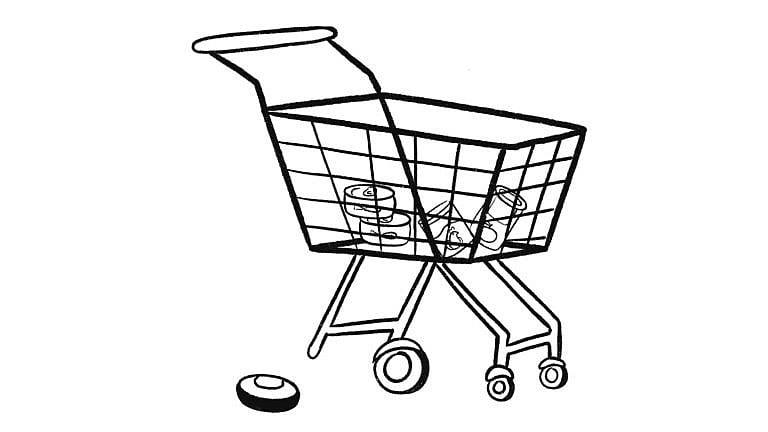Why we need to talk about food insecurity—in this election and beyond
Our editorial: Canadians are facing more food insecurity than they have in nearly two decades. It’s time to act.

(Illustration by Sol Cotti)
Share
For a century or more, Canadians have used a set of food-based clichés to describe their country—to each other, and to the world. Bread basket. Cornucopia. Land of plenty.
Smug as they sound, these terms are rooted in fact. The country is blessed with 40 million hectares of crop land, the energy resources to cultivate it and a fifth of the planet’s fresh water to make things grow. More importantly, in an increasingly global food economy, we are wealthy. An Edmontonian craving a $5 head of lettuce in February will barely have the car warm before reaching the store where it’s available. Wagyu beef? End of the aisle, turn right.
But the embarrassment of privilege at the macro level papers over a troubling drift within our communities. For the last decade or more, food insecurity—that is, inadequate access to sufficient amounts of nutritious food—has been on the rise. A 2020 study found that one in eight Canadian households struggled to put food on the table, a number that likely rose during the pandemic. One in six children live in food-insecure households. These are the worst numbers since Statistics Canada began tracking the phenomenon 17 years ago.
RELATED: This Nunavut grocery receipt shows just how pricey food is in the North
The evidence is visible to those who care to look. Each day in Iqaluit, where winter food prices can be triple or quadruple those seen in Canada’s southern cities, a lineup forms around the block at the community food bank (see our annotation of a Nunavut grocery bill). Indigenous and Black people are more likely to face food insecurity than white people. And forget the toxic stereotypes of welfare moms blowing money on cigarettes—today’s typical food bank client is a working-age adult with a job.
With these facts in mind, Maclean’s has embarked on a unique initiative, assigning Vancouver-based writer Nathan Sing to research and write about hunger and food security in Canada for one year. His position is being funded by the non-profit Maple Leaf Centre for Action on Food Security, in partnership with Community Food Centres Canada. Editorial oversight remains with Maclean’s.
This innovative partnership—a first for us—will allow Sing to explore this pressing issue in depth, while seeking answers from those positioned to make a difference. Before the federal election call, he sought clear platform statements on hunger and food security from all four major parties; their responses to date can be found on our platform guide at macleans.ca. They and their provincial counterparts can expect to hear from Sing again.
We believe this project goes to the heart of our collective identity. In Canada, as in other western democracies, fundamental human needs like food, water and shelter do not appear in the suite of rights guaranteed to citizens. We’re expected to obtain them ourselves.
But that makes hunger a direct function of income, wealth and geography. And worryingly, it pits one need against another. If you’re having trouble making rent, you buy cheaper, less nutritious food. For a time, you might buy no food at all.
That is a circumstance unbecoming of a society that calls itself just, and we are past the point of resolving it with Christmas charity drives or clever plans to limit food waste.
In every sense, this is a land of plenty. The time has come for meaningful action, and lasting solutions. This election campaign, Maclean’s will be pushing our political leaders to deliver both.